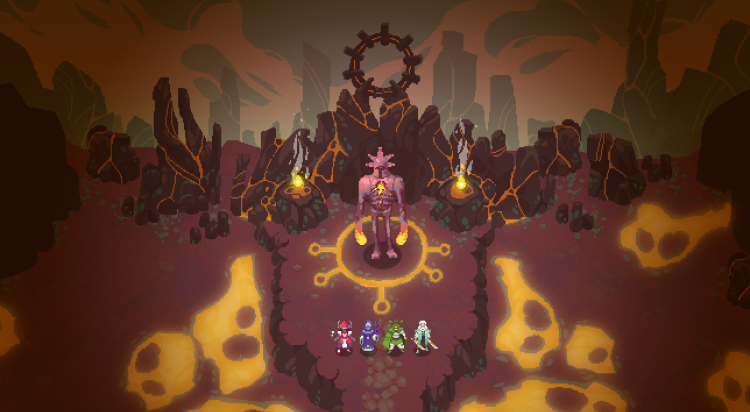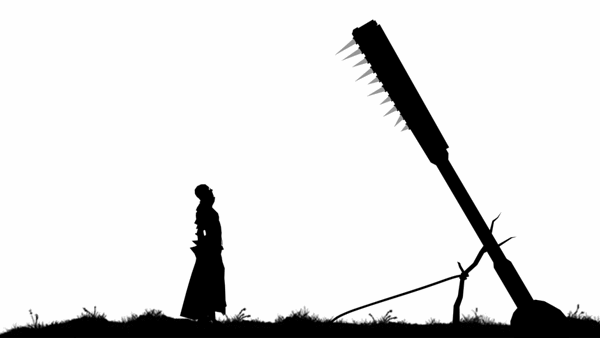Funding in a changing market
The industry is changing, and it’s easier to get a game to market now than it’s ever been. Many developers don’t see the need for a publisher at all, and this is a big problem for companies like Square Enix.
“The truth is, developers have a wider range of finding funding now,” said Elliott. “The industry has changed hugely in the past console generation or so. As a publisher, you used to be able to go to Game Connection or the Game Developers Conference and have 20 or 30 meetings and probably have a pretty good idea of what the double-A industry is offering and what you want to sign.
“Now that layer is receding, and instead, you’ve got 10,000 developers making so many different things. It’s a layer that rightly is less interested or requiring of working with publishers.”
Elliott points to recent breakout games that completely bypassed publishers. “We’re not going to make all the right decisions,” he said. “We wouldn’t have funded Papers, Please or Ridiculous Fishing or Minecraft, and we didn’t. And nobody did.”
“I personally don’t believe that publishers should be funding everything,” he said, explaining how Square Enix and other traditional publishers have an opportunity to see themselves in a different light outside the triple-A market.
“I think there’s an opportunity to say, ‘All right, here’s a list of services. Do you need any of these?’ It’s not [acting as] a publisher in a traditional sense. It’s more of a service provider.”
Kickstarter vs. Indiegogo
At launch, the Collective was billed as a partnership with Indiegogo, partly due to the crowdfunding site’s lack of region restrictions. The first wave of Collective projects didn’t have an option to use Kickstarter once they’d left the feedback stage.
The first project to find success on the Collective, futuristic action-role-playing game World War Machine, didn’t find things so easy when it actually hit Indiegogo.
World War Machines only raised $12,000 of its $40,000 goal, and Elliott said this was personally tough to take.
“By the end of it, we’d driven about 100,000 people to that campaign through the stuff that we’d done,” he said. “So, I thought we kind of did do what we set out to do. We can’t force people to back the project.”
Elliott had to sit down and think hard about what to do next: “We had to ask, ‘Is it the right platform?’ ‘Is it the right project?’ ‘Is it the pitch?’ I think there were some mismanaged expectations between the concept art and the game.”
Whatever the reason for the failure, changes to the Collective had to be made. And adding an option for Kickstarter was one such change.
As for World War Machine, the project certainly isn’t dead and buried yet. Without going into any details, Elliott told me that “there is other interest around that game.”
Finding success
If World War Machine was a failure, the Collective’s latest project, Moon Hunters, was a resounding success. Meeting its funding goal of $40,000 within 50 hours on Kickstarter, the beautiful 8-bit RPG went on to raise four times what it initially needed.
“It was reassuring to us because [it showed] we do have value to add,” said Elliott.
https://www.youtube.com/watch?v=M7o_Rj87Nuo
Moon Hunters was part of the Collective’s pilot phase back in January, and feedback from the community indicated demand for a PlayStation Vita version of the game. Elliott took that opportunity to introduce Moon Hunters developer Kitfox Games to the third-party publishing team at Sony. That then led to a post on the official PlayStation Blog, driving more traffic to the Kickstarter effort and helping end the campaign on a high.
Elliott said the Moon Hunters team was a great example of an independent developer with real drive, which also helped its campaign. “They’re great,” he said. “They’re real self-starters.”
The Collective future
The plan for the Collective is to now try and take one project forward to crowdfunding every month. The latest title to find Collective success, the dark and atmospheric Black the Fall, is now on Kickstarter. Based on the experience of its lead artist growing up in post-Soviet Romania, it takes inspiration from acclaimed titles like Limbo and Another World.
Elliott is keen to point out that the Collective is not a money-making venture, however, and if Black the Fall does find success, it will only help boost the platform further. “I have no revenue targets for Collective,” said Elliott. “Any money we do make over and above costs will be reinvested back into the platform.”
“There are a lot of things we want to do under the banner of education and pipeline support,” he said. “It’s a long-term project.”
Whatever comes next for the Square Enix Collective, it seems sure to remain tipped in favor of the developer, which is refreshing for an initiative coming from a large publisher. But, as Elliott says, “It has to work for developers because if there’s no content, there’s no platform.”
VentureBeat's mission is to be a digital town square for technical decision-makers to gain knowledge about transformative enterprise technology and transact. Learn More



